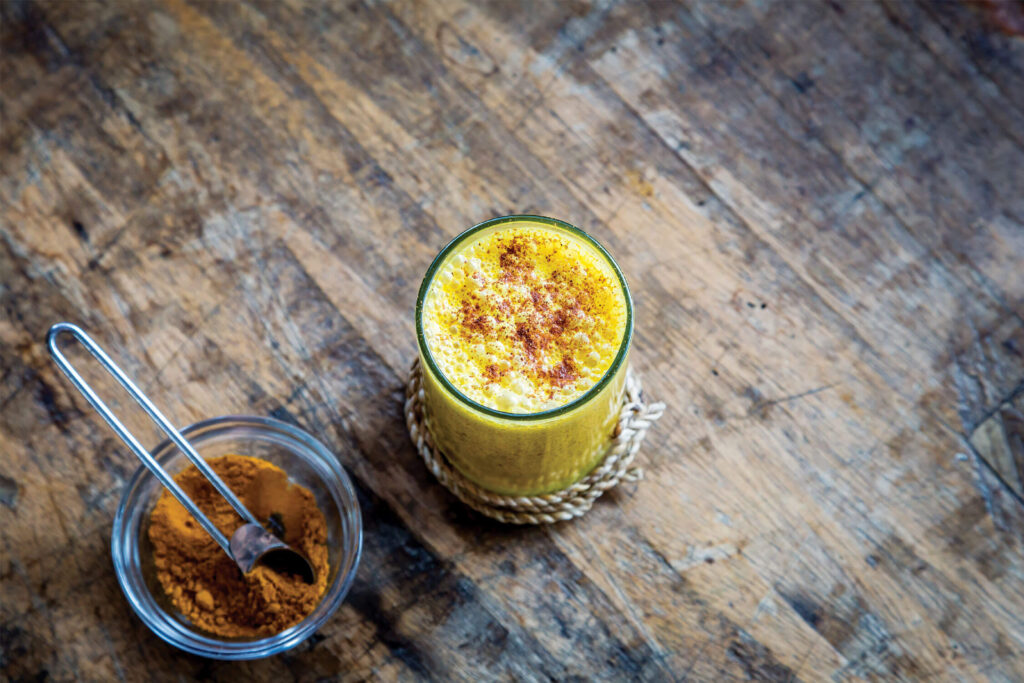Advertisement
Hot Right Now
Advertisement728×90 LeaderboardThe latest DIY craze: Craft your microbiome Gut health subscriptions, diaries, and drinks are seemingly everywhere. But one of the easiest ways to get “good” bacteria (probiotics) into your gut and shape your microbiome is through eating fermented foods, many of which are simple to make from scratch. Need proof? Here’s how to make … Continued

Advertisement
The latest DIY craze: Craft your microbiome
Gut health subscriptions, diaries, and drinks are seemingly everywhere. But one of the easiest ways to get “good” bacteria (probiotics) into your gut and shape your microbiome is through eating fermented foods, many of which are simple to make from scratch.
Need proof? Here’s how to make classic sauerkraut:
- Massage 1 Tbsp kosher salt into 1 3/4 lbs shredded cabbage and let cabbage sit for 10 minutes.
- Pound cabbage with the end of a rolling pin for 5 to 10 minutes, until cabbage is dripping with juices.
- Transfer to a clean jar, packing down tightly so brine covers cabbage.
- Cover mixture with a cabbage leaf and a weight, and cover jar with a clean towel.
- Leave for at least two weeks at a cool room temperature. Check a few times a week, removing any scum that appears.
- When you think your kraut is delicious, seal the jar and pop it in the fridge!
Advertisement
Get your hands dirty on Plant a Seed Day
The benefits of eating local are myriad—our carbon footprint is greatly reduced, and the nutrient density of our food is increased. What’s even better than eating local? Growing local. Participating in local food projects builds community and boosts mental health.
On March 19, 2020, why not participate in Plant a Seed Day? This global campaign is dedicated to promoting food security, outsmarting junk food, and showing kids “that growing healthy, real food is a powerful act.” Aimed at students, teachers, families, and individuals, the movement plans to plant one million seeds worldwide this year.
Head to plantaseedday.org to sign up … then plant a seed on March 19! Even better, get some kids involved and plant lots of seeds. For first-time planters, three fairly fail-safe seeds to get you started are lettuce, beets, and radishes.
No planting space of your own? To find a community garden near you, visit: communitygarden.org/garden.
Advertisement
Your basic tall soy latte is done for
Don’t get us wrong: We’re as prone to a basic latte craving as the next person. But the alt latte movement is providing some tempting alternatives. Coffee shop versions are often filled with sugar and artificial nastiness, though, so if you can, it’s good to make your dairy-free alt latte from scratch. Here’s a rundown of our favorites and their benefits.
The yellow one: turmeric (golden milk)
Turmeric is the darling of the anti-inflammatories. It’s packed with antioxidants and may help with memory and concentration. It’s also antibacterial, antiviral, and antifungal.
The green one: broccoli (yes, it’s a latte now)
To make a broccoli latte, you add 2 Tbsp dried broccoli powder to your regular dairy-free latte, infusing it with a full serving of detoxifying veg.
The beige one: maca
Known for its vitality-boosting effects, maca powder may help with libido, energy, mood, learning, and memory.




